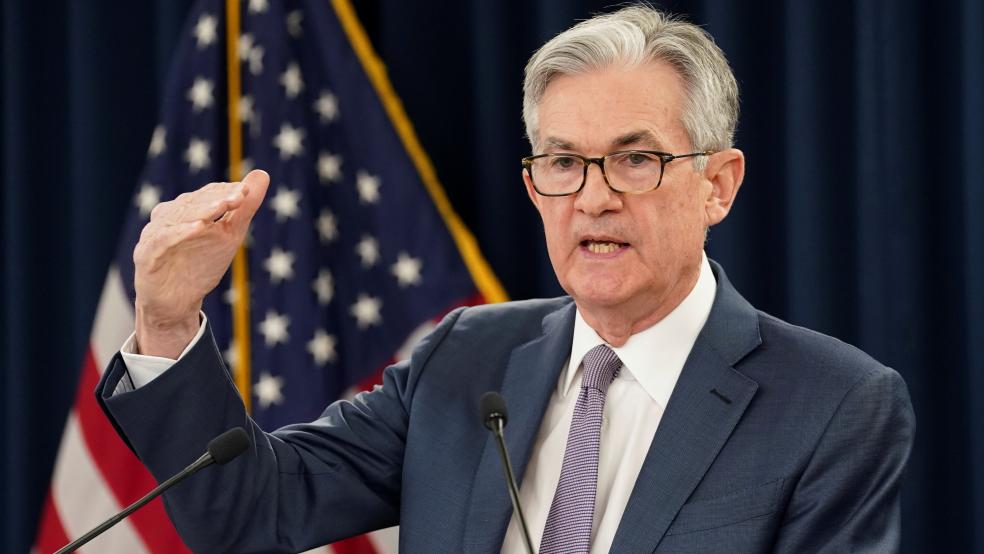Although Federal Reserve Chair Jerome Powell is a Republican and was appointed by former President Donald Trump, he is proving to be an important ally for Democrats as they push ahead on another massive Covid relief and stimulus package.
Appearing before the Senate Banking Committee Tuesday, Powell told lawmakers that the economy is still suffering from the effects of the Covid-19 pandemic and continues to need support, which the Fed for its part will provide through low interest rates and extensive open market operations.
“[T]he economic recovery remains uneven and far from complete, and the path ahead is highly uncertain,” Powell said in his prepared remarks. “Although there has been much progress in the labor market since the spring, millions of Americans remain out of work.”
Neutral stance on Biden stimulus: Powell told lawmakers that the Fed does not take a position on fiscal policy, including President Biden’s proposal to pump another $1.9 trillion into the economy. Pressed by Republican Sen. John Kennedy (LA) to declare whether he would be “cool” or “uncool” with the plan passing, Powell refused to change his stance, saying “I think by being either cool or uncool, I would have to be expressing an opinion.”
Worry about deficits later: Kennedy asked Powell how the country “ought to pay all this money back,” referring to the historic deficits the federal government has run as the country fights the pandemic. “I think that we will need to get back on a sustainable fiscal path,” Powell replied. “The way that has worked when it is successful is you just get the economy growing faster than the debt. That’s going to need to happen, but it doesn’t have to happen now.”
Inflation not a concern: The Fed chief said more normal conditions should start returning later in the year, but he expects to continue to provide support for the foreseeable future, even if inflation starts to rise. “The economy is a long way from our employment and inflation goals, and it is likely to take some time for substantial further progress to be achieved,” he said.
Powell noted that inflation has run below 2% annually on average for the last 25 years. “Inflation dynamics do change over time, but they don't change on a dime, so we don't really see how a burst of fiscal support or spending that doesn't last for many years would actually change those inflation dynamics,” he said.
Powell also said that the link that may have existed in the past between deficits and inflation hasn’t been seen lately. He suggested, too, that rising Treasury yields are a good sign, rather than a warning to policymakers to slow down. “In a way, it’s a statement of confidence on the part of the market that we will have a robust and ultimately complete recovery,” he said.
Why it matters: By highlighting the need for further federal support for the economy and pushing back against largely Republican concerns about inflation and debt, Powell is providing significant cover for Democrats as they advance their $1.9 trillion plan through Congress.



